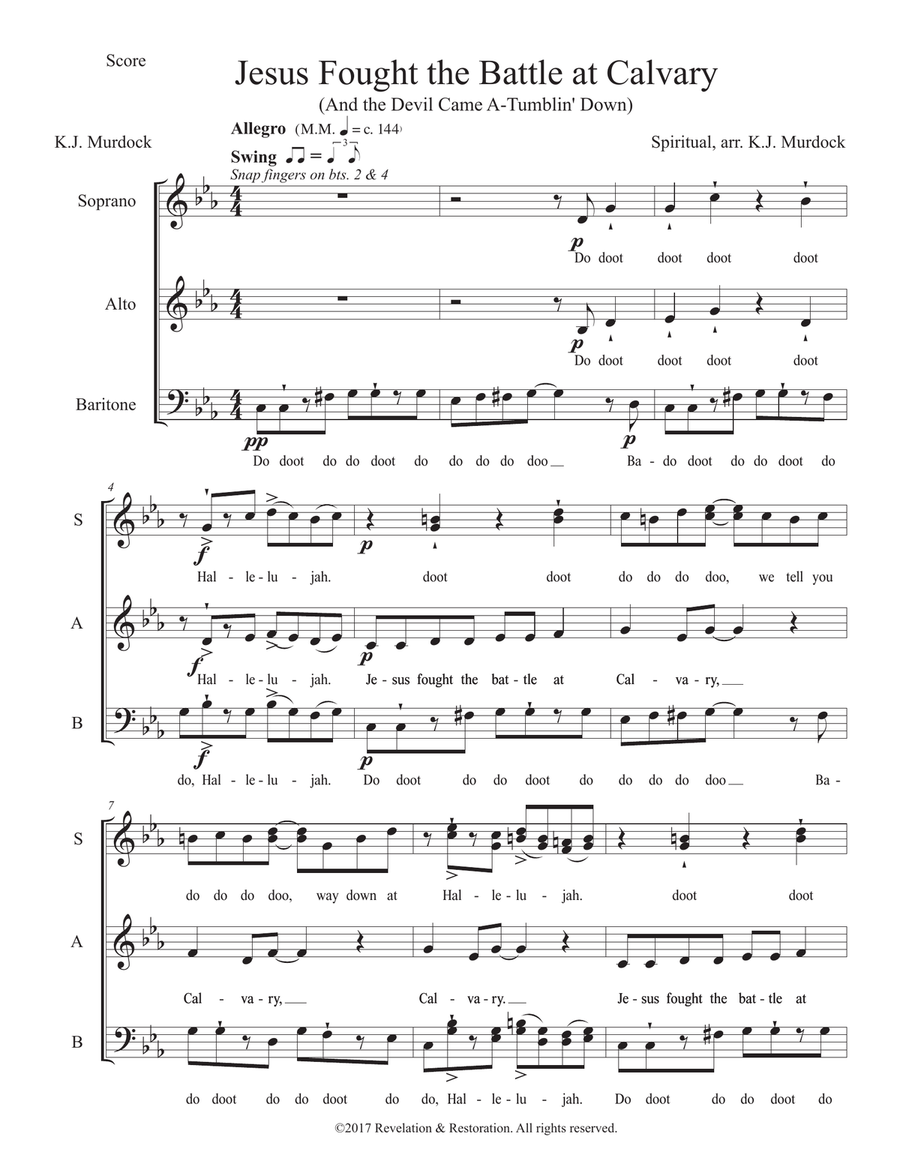Choral Choir (SAB) - Level 4 - Digital Download SKU: A0.893703 Composed by Lyrics by K.J. Murdock, music arranged from African American Spiritual. Arranged by K.J. Murdock. A Cappella,Blues,Christian,Easter,Gospel,Spiritual. Octavo. 7 pages. Kristopher James Murdock #3052979. Published by Kristopher James Murdock (A0.893703). Teachers and singers, do you need a fresh new song, with a new feel, based on a timeless classic?Church music leaders, are you looking for a unique way to share the faith, a change in style to draw attention to the Gospel in song?The new a capella Gospel song Jesus Fought the Battle at Calvary, to the tune of the familiar American Spiritual Joshua Fought the Battle of Jericho, solves both problems.The tune, with its lively blues chorus and solemn verses, is arranged from a Spiritual that emphasized the hope of an oppressed people to emerge triumphant one day, from slavery into a Promised Land of freedom, just like Moses and his successor Joshua in the days of old. These lyrics remind Christians of the belief that, by the Blood of Calvary, God's people of all races are spiritually triumphant over the ultimate foe, satan. Taking these contexts together, Jesus Fought the Battle at Calvary reminds us of a people who learned to look to God for victory and freedom, in both the spiritual and the natural realm. Jesus Fought the Battle at Calvary will be an inspiring addition to your repertoire, whether at Easter season or at any other time of year.Duration: approximately 1:53Uses: Church, school, etc.Rights: Feel free to sing this choral piece live without any additional charge beyond the price of sheet music, as long as no admission is charged in any non-academic setting other than a church fundraiser. For rights to charge admission in any other setting, or for any other rights such as copying or recording, please contact:
